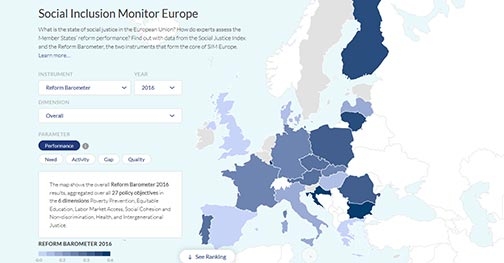SIM Europe's most recent european-wide expert survey reveals lack of reform towards establishing lifelong learning in several EU countries. According to the experts, in ten countries, no reforms have been undertaken aimed at improving financial or human resources for lifelong learning. Moreover, the researchers see a great need for reform in many countries regarding the strong influence of social origin on educational success. Six countries were not active in this regard: Croatia, Finland, Greece, Hungary, Slovakia and Spain.
"The lack of education reforms in many countries is cause for concern," said the chairman of the Bertelsmann Stiftung Aart De Geus. "Member States of the EU should do everything they can to promote the permeability of education systems and lifelong learning, otherwise" poverty careers "will continue to be inherited and social inequalities will be cemented."
The study is based on a pan-european expert survey, involving more than 1,000 researchers. The research consortium has examined social policy reforms implemented between mid 2014 and early 2016 in five dimensions: poverty, education, the labor market, social cohesion, non-discrimination and health. According to the experts surveyed, there is a great need for reform in all five dimensions. However, the EU Member States on average have adressed only 50% of the EU-wide reform needs. The largest reform gap is stated for the education sector. Only a third of the reform needs were addressed here.
The lowest educational reform activities were indicated for Greece, Lithuania and Spain. The United Kingdom, on the other hand, was above-average, but in some cases with negative social consequences. As an example, the experts mention the partly drastic increase of study fees. From the researchers' point of view, Malta is on the best way to deal with educational reforms. They also consider a program to reduce the number of early school leavers, free childcare, or the introduction of evening and online courses for flexible study.
Learn more at:
